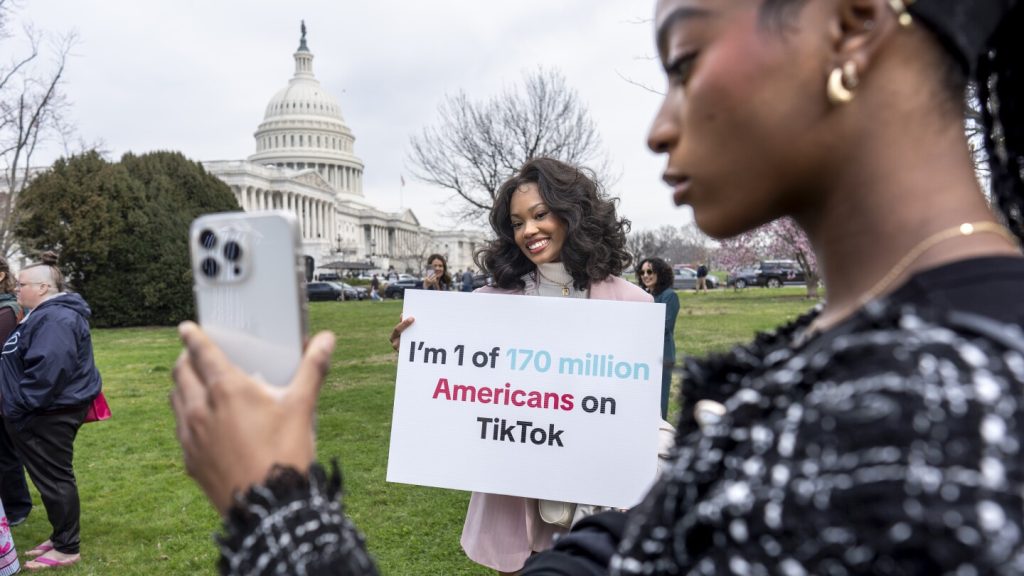House lawmakers are renewing their efforts to push legislation that would ban TikTok if its Beijing-based parent company, ByteDance, does not divest from the popular social media platform. The legislation, included in a package of bills providing aid to Ukraine and Israel, could become law as soon as next week if Congress moves quickly. The revised bill gives ByteDance nine months to sell TikTok, with a possible three-month extension if a sale is in progress. It also prohibits the company from controlling TikTok’s algorithm that tailors content to users’ interests, a key feature of the app.
Lawmakers have expressed concerns about TikTok due to fears that Chinese authorities could compel ByteDance to hand over data on the 170 million Americans who use the platform. The Chinese government’s track record of using national security laws to gather intelligence has raised alarms among U.S. officials. While opponents argue that China could access American information through other means, lawmakers worry about the potential influence China could have over TikTok’s content. TikTok has denied these allegations and insists it has not shared U.S. user data with Chinese authorities, nor will it do so if asked. Despite concerns, the U.S. government has not provided public evidence of TikTok sharing data with China.
House lawmakers are expected to vote on the foreign aid package containing the TikTok proposal this weekend. Though the package has bipartisan support, some opposition stems from conservatives opposed to providing aid to Ukraine amid its conflict with Russia. President Joe Biden has indicated he would sign the TikTok legislation if it reaches his desk. TikTok has spent millions on TV ads opposing the bill and has emphasized its commitment to data safety and its positive impact on content creators and small businesses. Digital rights and free speech groups have supported TikTok, urging against the ban proposed by the House bill. Despite potential buyers expressing interest, challenges remain in acquiring TikTok’s U.S. business, including regulatory scrutiny and opposition from China.
If ByteDance were to divest from TikTok, potential buyers would need to navigate challenges such as the high cost of acquisition and regulatory hurdles. Big tech companies, though able to afford TikTok, would likely face antitrust scrutiny. The revised legislation could make TikTok more affordable to purchase if it becomes law and survives legal challenges. China’s restrictions on exporting recommendation algorithms could pose a challenge to a potential buyer, as they may need to rebuild crucial aspects of the app. The future of TikTok remains uncertain as lawmakers continue to push for stringent regulations on the platform.


